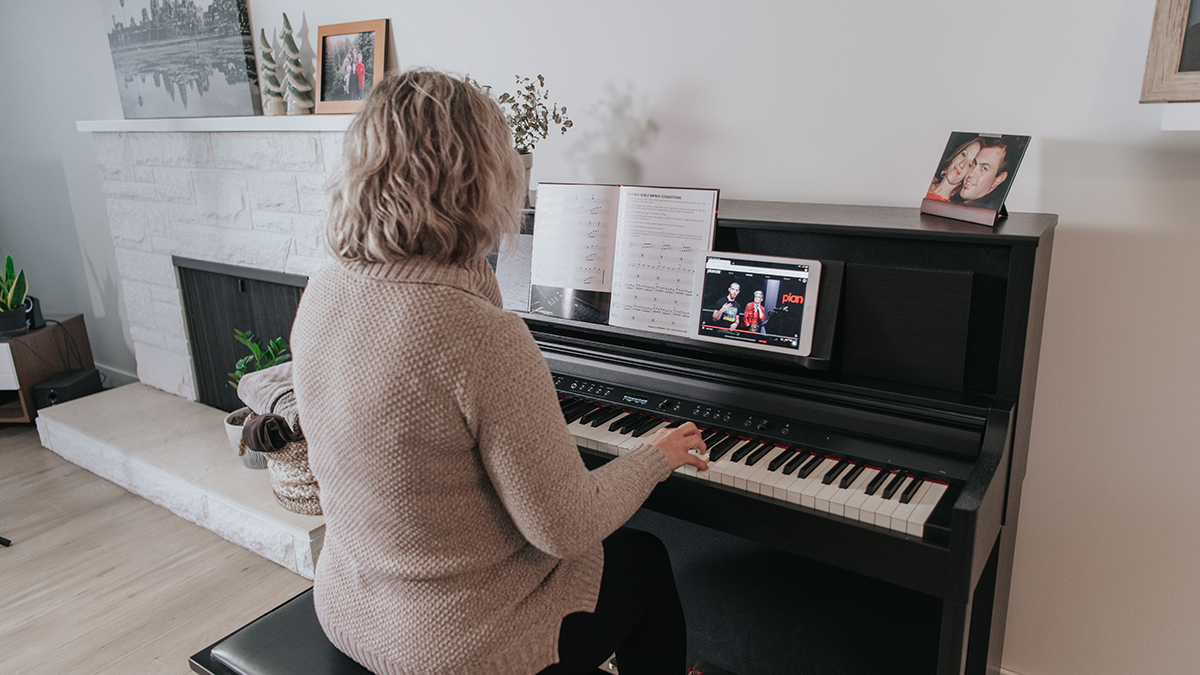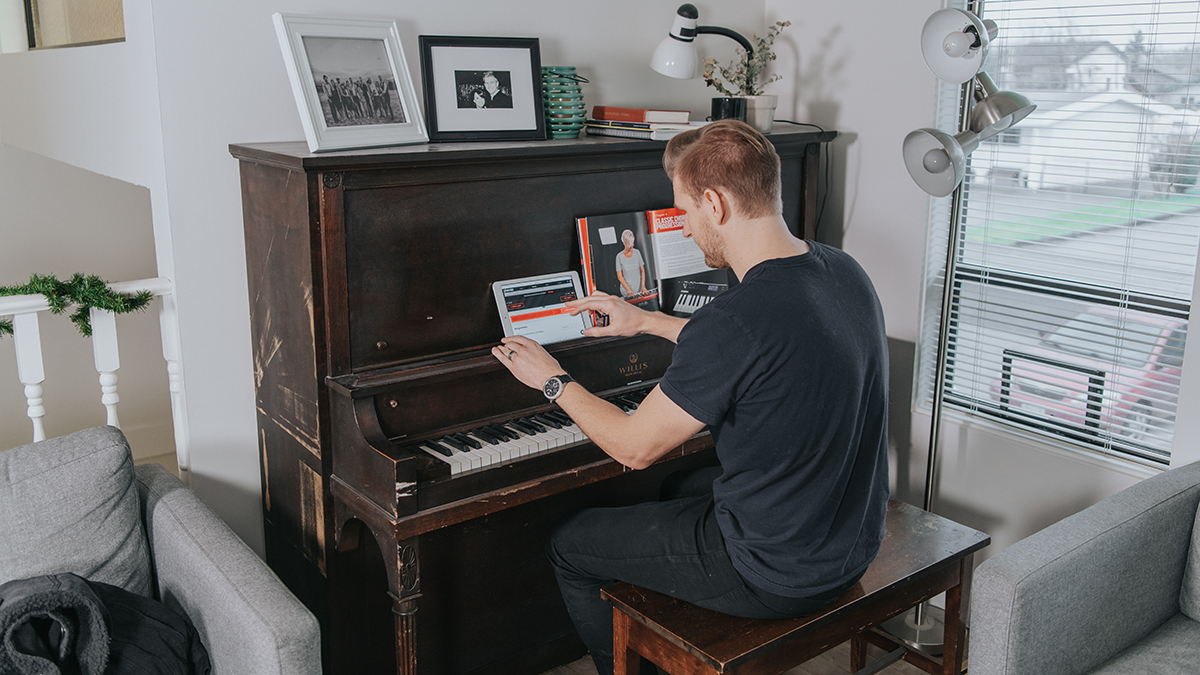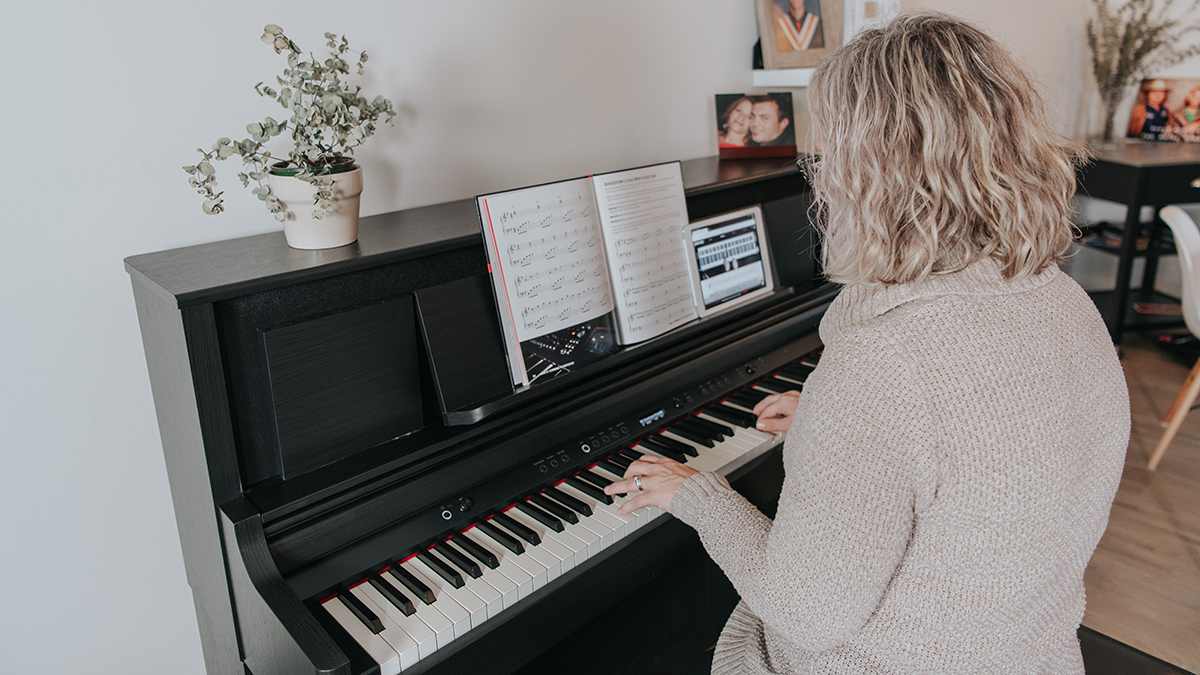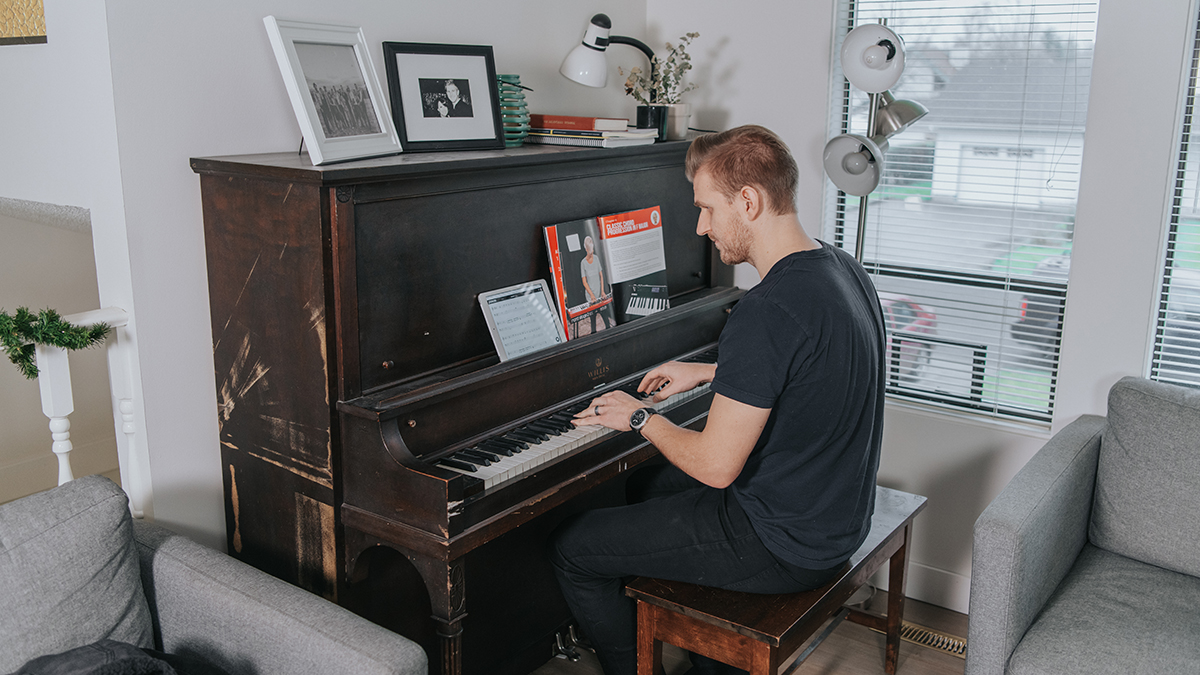MusicRadar Verdict
Whether you’re totally new to the piano or merely want to take things further as a musician, Pianote's well-structured and informative array of high-quality content is definitely well worth exploring.
Pros
- +
Engaging, relaxed and informal feel to lessons
- +
High production values
- +
Comprehensive curriculum for beginners
- +
Livestreamed student review feature
- +
Large forum-based student community
Cons
- -
Not a huge amount of advanced lessons
- -
Lifetime membership pricey compared to others
MusicRadar's got your back
Pianote review: What is it?
For the purposes of conducting this review, we were granted full access to the Pianote platform.
One thing that always seems to rate fairly highly on many peoples' bucket lists is learning a musical instrument, and as we write this, it seems that learning the piano in particular has never been more popular, thanks in part to the recent pandemic. In a peculiar twist, the number of people taking up the piano skyrocketed during lockdown as many of us ended up with more time on our hands at home than usual. Online piano lesson services in particular saw a marked increase in popularity, as they're a perfect way to access quality learning in a Covid-safe way, providing a viable alternative to face-to-face lessons in turbulent times.
One of the more prominent of these services is Pianote, a video-driven piano-learning portal from Musora Media, the makers of the popular Drumeo, Guitareo and Singeo platforms. Pianote's mission statement offers the freedom to learn the piano anytime, anywhere, backed up by experienced, enthusiastic and friendly teachers. More importantly, if you're a member, you get access to all videos across all courses, completely ad-free, available in two structured curriculums, all of which offers a much better experience overall than diving down the rabbit hole of random, ad-infested YouTube videos of variable quality.
At the time of writing, Pianote's subscription prices are $29 monthly or $197 annually, with occasional lifetime memberships available for $997, all with a 90-day money back guarantee if you're not satisfied. This works out very favourably in comparison with the cost of face-to-face, in-person piano lessons. Once your membership is up and running, you get two opportunities to pause the subscription and take a break, each pause lasting a minimum of 14 days. What you're paying for is a subscription to access online content, so there's no software to download or install, and you can access the site from both your desktop’s web browser and the companion Pianote app on a mobile device. There’s also a 30-day free trial period exclusive to MusicRadar readers so you can try before you buy.
Pianote review: Performance & verdict

Main courses
The Pianote system is centred around two core syllabuses. The current main pathway is known as the Method, and takes you right through ten levels of lessons, from the very basics of navigating the keyboard through to playing your first tune and right up through to intermediate level. The first four levels in the Method are designed to develop confidence on the keyboard, finding your way around, learning the notes and playing chords. Levels 5 to 7 focus on sight-reading, level 8 constitutes an introduction to classical, jazz and blues stylings, level 9 looks at composition and songwriting techniques and the final level 10 looks at improvising skills, repertoire development, how to play with a band and other ways in which you can move forward as a musician.
There's an older, more basic curriculum available too, called Foundations, and it was student feedback on the content offered here that led to the development of the newer Method curriculum. Foundations is made up of ten levels containing ten lessons each, covering topics like Core Skills, Minor Keys, Hand Independence and a variety of musical styles. Although both courses are freely available to members, the official recommendation is to start off with the Method and follow that curriculum, using the material in the Foundations course as extra content if needed.
The main tutor is an engagingly perky lady named Lisa who has a relaxed and informal teaching style and a knack for making the subject approachable and fun while at the same time keeping the content relevant and informative. Elsewhere on the site you’ll find several other tutors, each specialising in a particular area, making it easy to choose your skill level, pick a preferred instructor and filter down the specific areas you want to work on.
Want all the hottest music and gear news, reviews, deals, features and more, direct to your inbox? Sign up here.
Production values across the site are satisfyingly high and the quality of the videos themselves is second to none - the lessons are beautifully lit, pin sharp, with great audio and MIDI-driven keyboard animation overlays that give a precise indication of what your tutor is playing at all times. The multi-camera setup cuts frequently from presenter view for explanations to an overhead view of the keyboard for examples and technique demonstrations.
Most lessons come with downloadable resources such as sheet music, chord charts or even backing tracks that you can print off or download to use in your practice sessions once you’ve watched each video. Also on offer are a number of subsidiary Packs, Quick Tip videos and Bootcamps that focus on particular styles and techniques, such as classical piano, sight reading, worship piano and fast finger development.
As you complete each lesson, you receive experience points, or 'XP' which add up cumulatively as you progress through the course, giving you an overall score that shows in your user profile. There's also a large student community active in the Pianote forums, which contain discussions about general piano topics, gear selection, student progress, practice schedules and communal support.
Live and direct

Live lessons are one of the features that elevate Pianote above the realms of the ordinary. The student review feature allows you to video yourself playing and submit the videos to the tutors for critique. This happens in scheduled livestreams that the tutor performs to several users at once, with the chance to ask questions in the chat during the lesson. The tutor will play videos that students have submitted, assess the performance and discuss possible areas of improvement.
Livestreams are currently scheduled several times during the week and can be viewed as archived recordings after the event. They're presented in a very relaxed and informal style, with multiple camera angles of the tutor at the piano intercut with footage of the student submissions - quite a technical undertaking!
Teachers also host regular live Q&A sessions to answer any questions students might have encountered during practice sessions, there are 'Technique Tuesdays' to focus in on some of the finer points and even a podcast for regular discussions about all things piano-related.
Meanwhile, there's a generous song library of over 100 tunes in different genres for you to learn to play, many with pre-recorded backing tracks. You can search for songs by applying a variety of filters such as difficulty level, style or artist and choose to use either sheet music or a chord chart. Like the rest of the site, the library is constantly being updated with new material, so it gets larger all the time.
Verdict

Most of Pianote's lesson content seems to be aimed at beginners, while we found there was a less generous selection of material to be found at intermediate level and not much at all for advanced players. There are a few jazz lessons dotted about, with some useful practice exercise ideas for more advanced players, so even if you know your way around the keyboard already, there’ll be something of interest for you somewhere on the site.
Flowkey
Offered as a free trial with most new Yamaha keyboards, his intuitive app is well designed, well presented and perfect for beginners and returning pianists.
Playground Sessions
Founded with the backing of legendary producer Quincy Jones, and with Harry Connick Jr as one of the tutors, Playground Sessions has some heavyweight credentials, and even their own branded keyboard you can buy to use with the service.
Skoove
Approachable app-based service that offers clear and easy-to-use online interactive piano lessons for all ages.
One of the biggest hurdles for new players to overcome is knowing what to play when you sit down at the piano. In this regard, Pianote has you more than covered, with its main strengths being the structured pathways that you can work through at your own pace without the stress of someone watching over your shoulder. Although not instant, there's plenty of help and feedback available if you need it, both from the forum discussions and the student review feature.
Overall, we found Pianote to be a fantastic resource for beginners, and a brilliant way to immerse yourself in the world of the piano. The subscription is relatively affordable considering the amount of content that it buys you, the song library is large enough to keep you engaged whatever level you're at, and even advanced players will find inspiration in some of the exercises, practice schemes and other resources, all of which constitute a great way to fill in gaps in your technique, expand your repertoire or merely kickstart your playing if you've plateaued. Whether you’re totally new to the piano or merely want to take things further as a musician, Pianote's expansive and informative array of high-quality content is definitely well worth exploring.
Pianote review: Hands-on demos
Levi Clay
Pianote
Pianote review: Specification
Dave has been making music with computers since 1988 and his engineering, programming and keyboard-playing has featured on recordings by artists including George Michael, Kylie and Gary Barlow. A music technology writer since 2007, he’s Computer Music’s long-serving songwriting and music theory columnist, iCreate magazine’s resident Logic Pro expert and a regular contributor to MusicRadar and Attack Magazine. He also lectures on synthesis at Leeds Conservatoire of Music and is the author of Avid Pro Tools Basics.




